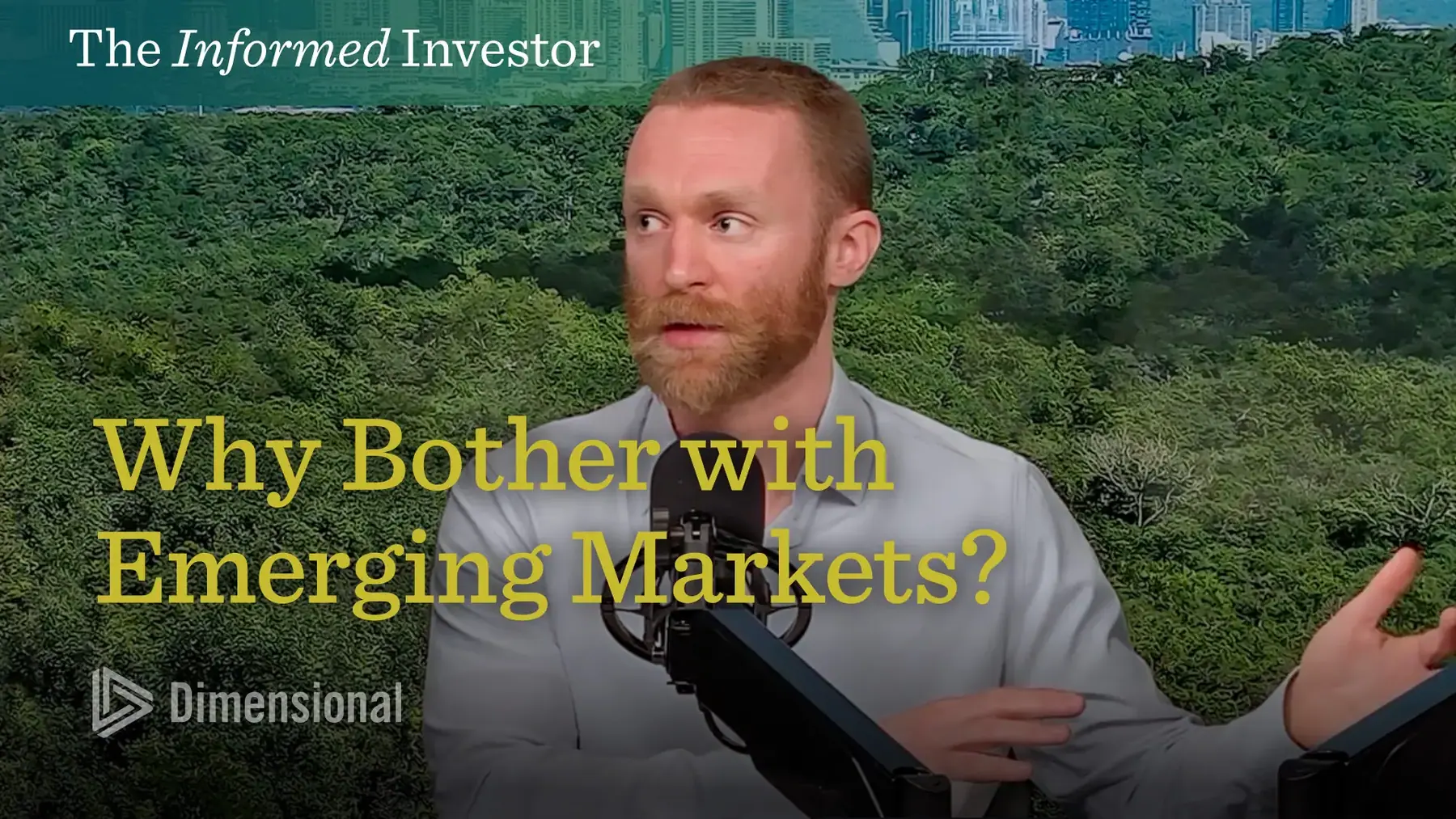The Informed Investor: Economic Growth and Stock Returns
How do changes in the economy impact stock returns over the short and long term?



In Episode 4 of The Informed Investor podcast: Whether responding to economic forecasts, consumer price changes, or tariff policy updates, market prices adapt to new information, including changes in gross domestic product (GDP). Luckily for investors, markets are forward-looking and generally react before changes in the economy show up in the macroeconomic data. This also means that, even when the immediate economic outlook is weak, expected stock returns can be positive over the long term—and that a positive surge in the stock market can occur at the same time a bleak economic report emerges in the media. All that said, heightened political uncertainty, trade wars, volatile inflation, and questions on whether the economy will expand or contract may leave investors with concerns about getting into or out of the market or sticking with their plan.
Dimensional’s Mark Gochnour, Wes Crill, and Jake DeKinder review the performance of the stock market during recent periods of economic turbulence, such as the global financial crisis of 2008–2009 and the COVID-19 pandemic, and discuss sensible ways for investors to think about economic growth in the context of investment decision-making.















